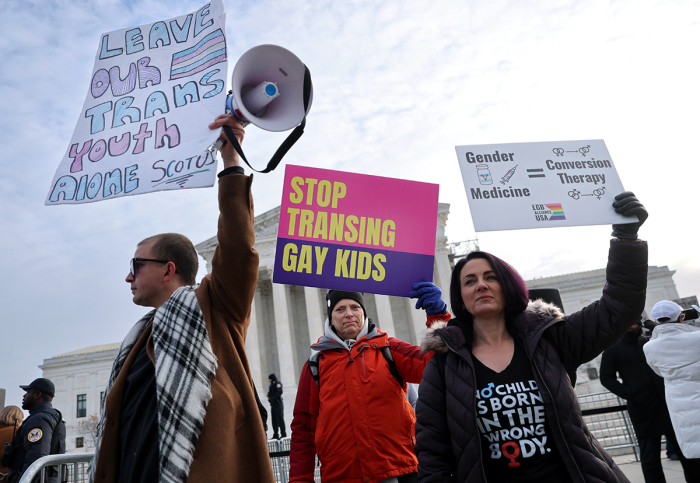
Freezing the reproductive cells of gender dysphoric youth at risk of infertility due to puberty-blocking drugs and cross-sex hormones to preserve their ability to reproduce raises ethical concerns, three researchers conclude in a new study.
In a paper published this month, endocrinologist Michael K. Laidlaw, Center for Bioethics and Culture Network Founder Jennifer Lahl and Wisconsin OB-GYN Angela Thompson examined the consequences of using reproductive technologies intended for patients suffering from diseases on physically healthy, gender dysphoric youth.
“We believe emphatically that the medical profession does not have the right to experiment on physically healthy children and adolescents,” Lahl told The Christian Post.
The peer-reviewed medical journal Frontiers in Endocrinology published the report, titled “Fertility preservation: is there a model for gender-dysphoric youth?” The researchers assert that identifying as trans or “gender-diverse” is not a physical condition.
While children diagnosed with cancer who require chemotherapy or radiotherapy may have no other way to preserve their fertility aside from, for example, cryopreservation, they argue that gender dysphoric youth don’t have to risk their reproductive capacities by pursuing drugs that delay puberty or by using cross-sex hormones.
The authors believe that it’s unethical to impair a child’s future ability to become a parent through so-called “gender-affirming care,” only to direct them to fertility preservation as a way to circumvent the side effects.
Lahl, a former pediatric critical care nurse and director of the 2021 documentary “Trans Mission: What’s the Rush To Reassign Gender?” also stated that fertility preservation is experimental and carries a high chance of failure.
“‘Gender Affirmation Therapy’ knowingly prescribes puberty blockers, cross-sex hormones, and surgeries that render this population either sub-fertile or infertile under the illusion of providing ‘medically necessary life-saving care,’ which misrepresents the evidence around fertility preservation,” Lahl told CP.
According to Lahl, there is no way to determine how many children and young adults suffering from gender dysphoria have been offered fertility preservation, nor is it known how doctors or institutions market such interventions to them before they are “put on a medical pathway that will harm or even destroy their healthy fertility.”
The paper published by Lahl and her colleagues presents the ethical issues of offering fertility preservation, she said, adding that the paper doesn’t offer a “systemic approach in counseling these young people or their parents of the risks (which are many) and the benefits (which are few).”
In recent years, several European countries have tightened their guidelines or even paused some gender-related procedures for minors.
Lahl cited Dr. Hilary Cass’ review of the issue for the National Health Service in the United Kingdom, which suggested that “all children should be offered fertility counseling and preservation before going on a medical pathway.” Lahl contends Cass may be unaware that “fertility preservation is fraught with problems, both ethically as well as the failure of it.”
In the section of the paper on counseling, Lahl and her colleagues noted that counseling regarding fertility preservation in gender-dysphoric youth is “new and not standardized.”
The report also warned that even in cases when children have cancer, parents may not fully understand what’s happening, with the authors noting that general family satisfaction regarding the counseling process for fertility preservation is lacking.
The paper cites a study finding that only 30% of parents surveyed reported that they were satisfied with the counseling they received regarding fertility preservation for their children.
If parents of children diagnosed with cancer have such high levels of dissatisfaction regarding the counseling they received, then the authors assert it’s unlikely that counseling on fertility preservation for transgender-identifying children and adolescents would be any better since so little is known about the consequences of combining hormone-suppressing drugs and potential surgeries.
“Certainly, a discussion of fertility preservation with the child and parents is important to be had; however, children — and often even adolescents — lack the foundational understanding of biology and reproduction necessary to understand advanced fertility preservation techniques, particularly in the context of GAT,” the paper reported.
“Likewise, parents, who are generally a part of the informed consent process, would be expected in many cases to have difficulties comprehending the complex biological and ethical aspects of FP in relation to GAT,” the authors continued.
Samantha Kamman is a reporter for The Christian Post. She can be reached at: samantha.kamman@christianpost.com. Follow her on Twitter: @Samantha_Kamman


















